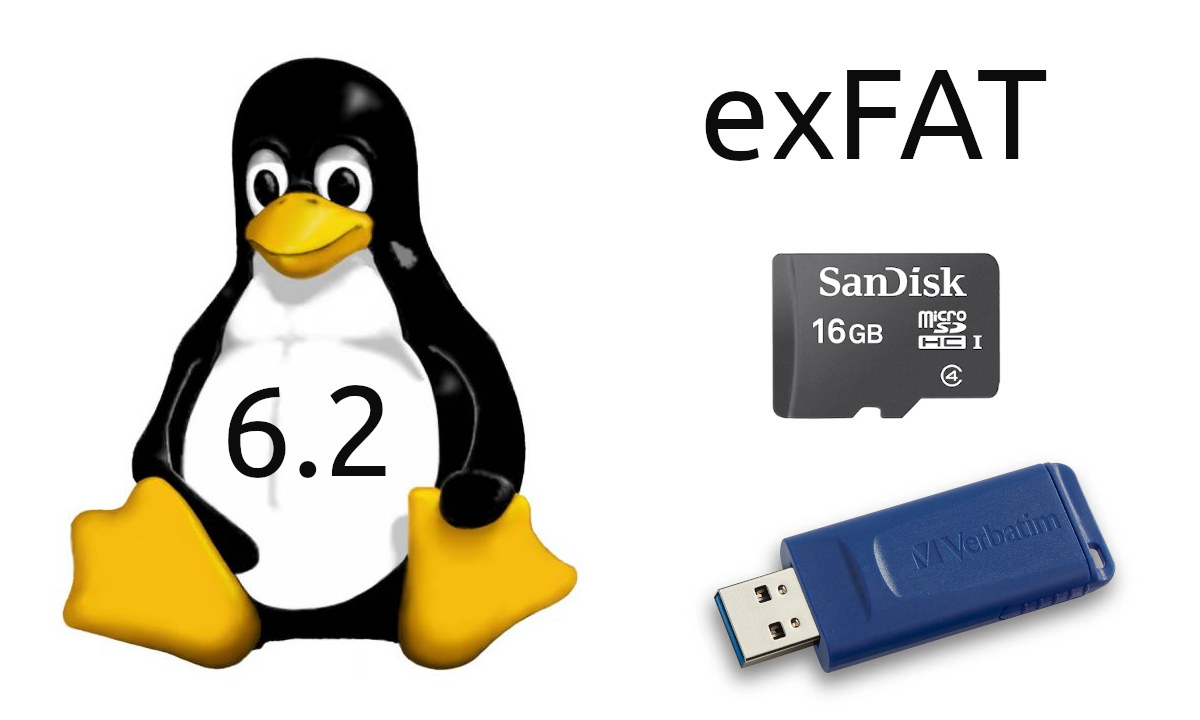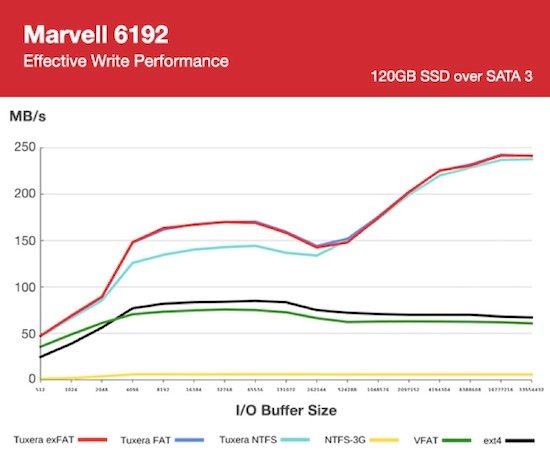The exFAT file system is about to get faster in Linux 6.2, at least when creating files and directories, with the performance boost especially noticeable on low-end processors. Microsoft released the exFAT specification and announced Linux support in August 2019, which was followed by a new exFAT implementation in Linux 5.7 (June 2020) from Samsung. But people are still working on improving exFAT Linux support, and Yuezhang Mo, an engineer at Sony, committed a patchset for Linux 6.2 that reduces repeated traversal of directory entries to boost the performance of exFAT: After traversing all directory entries, hint the empty directory entry no matter whether or not there are enough empty directory entries. After this commit, hint the empty directory entries like this: 1. Hint the deleted directory entries if enough; 2. Hint the deleted and unused directory entries which at the end of the cluster chain no matter whether enough […]
Tuxera FAT+ File System for Embedded Systems is Compatible with FAT32, Faster, and Supports Files up to 16TB
Tuxera has introduced FAT+, a new file system for removable storage on embedded systems that’s compatible with FAT32 but without the limitations such as the 4GB file size limit, and brings fail-safety and performance optimization. FAT+ is allegedly one of the recommended file systems by the Universal Flash Storage Association (UFSA) for the next-generation Universal Flash Storage (UFS) cards. Some of the key features of Tuxera FAT+ implementation include: Supported Operating Systems – Android, Linux, Chrome OS, Firefox OS, Tizen Hardware Architecture – ARM, ARM64, Intel x86/x86_64 or compatible, MIPS, MIPS64, PowerPC, SH4, and more Capacity Maximum volume size – 2 TiB with 512-byte sectors, 16 TiB with 4096-byte sectors Maximum allocation block size – sector size in bytes x 128 Maximum file size – 16 TiB Maximum filename length – 255 characters (16-bit) Supported sector sizes – 512, 1024, 2048, and 4096 bytes Interoperability Conforms to all Microsoft FAT […]
Linux 3.15 Released
Linus Torvalds announced the release of Linux Kernel 3.15 last Sunday: So I ended up doing an rc8 because I was a bit worried about some last-minute dcache fixes, but it turns out that nobody seemed to even notice those. We did have other issues during the week, though, so it was just as well. The futex fixes and cleanups may stand out, but as usual there’s various other random fixes since rc8 in there too: mainly drivers (drm, networking, sound, usb etc), networking, scheduling and perf tooling. But it’s all been fairly small and quiet, which *may* of course be due to the fact that last week was also the first week of the merge window for 3.16. That might have distracted some developers. I’m not entirely convinced I liked the overlap, but it seemed to work ok, and unless people scream really loudly (“Please don’t _ever_ do that again”) and give good […]
Tuxera FAT Embedded Boasts Faster and Better FAT32 Implementation for Embedded Linux and Android
Tuxera has announced their “FAT Embedded” implementation of the FAT file system specifically optimized for embedded Linux and Android. The company claims their commercial solution delivers much faster data transfers than competing FAT implementations. Beside providing better performance, it also includes features such as fail-safe operation, and lower power consumption. They’ve benchmarked different file systems including Tuxera FAT Embedded with different I/O buffer sizes on two embedded hardware: Marvell 6192 @ 800 MHz with 512 MB RAM and a 120 GB Corsair Force GT SSD (SATA 3) The write speed of Tuxera exFAT and FAT appears to clearly outperform even ext-4 in this particular system. As a side note, I also evaluated 2 embedded systems based on the same low-end CPU: one using NTFS-3G, and the other Tuxera NTFS back in 2010, and there’s was a massive performance difference at the time. NTFS-3G is a different beast as it uses […]






